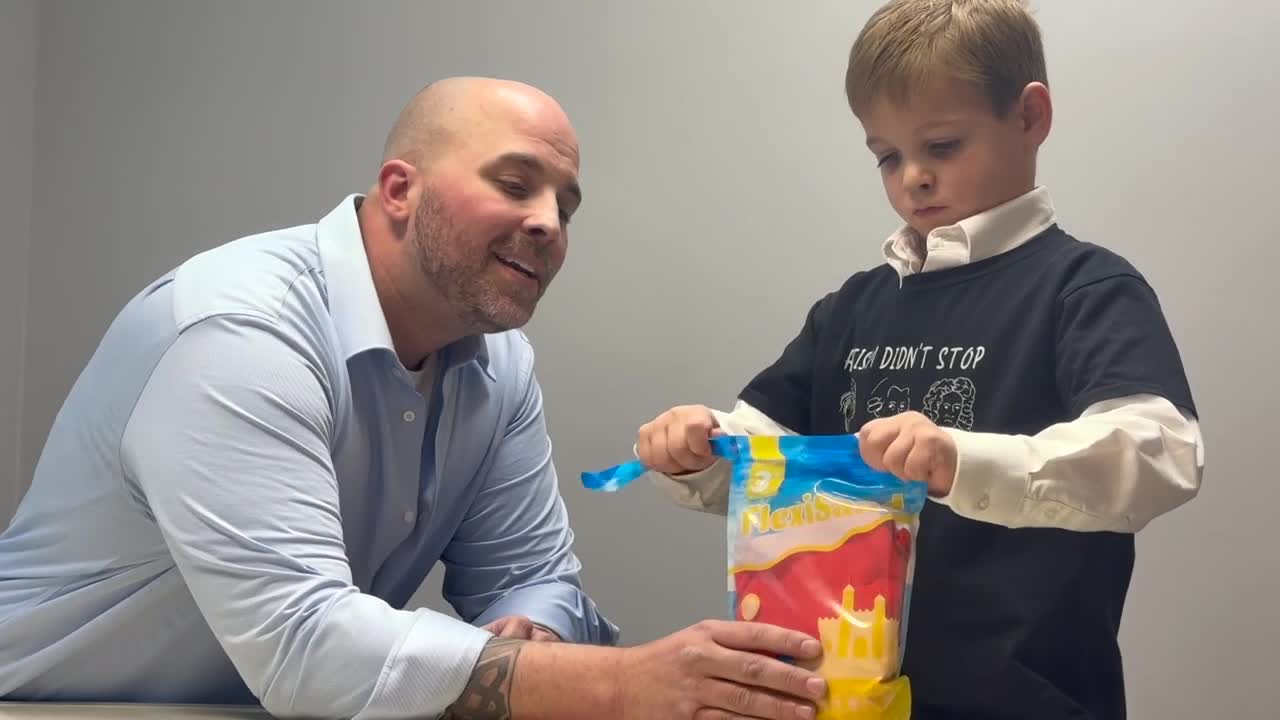OMAHA, Neb. (KMTV) — Nebraska cut ABA therapy reimbursement rates in August, forcing many providers to stop taking Medicaid insurance. Lamplight Behavior's clinician-led model continues acceptance.
- For families like Brooke Eggert's, ABA therapy has been life-changing. Her 5-year-old son Tony was diagnosed with autism at 2½ years old.
- "Our focus is not based on becoming the biggest service provider. It's based completely on providing high quality clinical services, so that clinical component is always going to come first for us," said Lamplight regional director Ryan Jones.
- Lamplight Behavior opened its West Omaha location near 108th and Q Street and is now taking inquiries for ABA therapy services.
BROADCAST TRANSCRIPT:
A new Omaha clinic is continuing to accept Medicaid patients for Applied Behavior Analysis (ABA) therapy despite state funding cuts that forced many providers to reduce services or stop accepting the insurance altogether.
Lamplight Behavior opened its West Omaha location near 108th and Q Street and is now taking inquiries for ABA therapy services. The clinic's regional director says their clinician-led model allows them to maintain Medicaid services even after Nebraska cut reimbursement rates in August.
"Our focus is not based on becoming the biggest service provider. It's based completely on providing high quality clinical services, so that clinical component is always going to come first for us," Ryan Jones said.
The Nebraska Department of Health and Human Services reduced Medicaid reimbursement rates for ABA therapy on Aug. 1, saying the state had some of the highest payment rates in the country. The change led many providers to stop accepting Medicaid or cut back on services they offer.
For families like Brooke Eggert's, ABA therapy has been life-changing. Her 5-year-old son Tony was diagnosed with autism at 2½ years old.
"Tony is very bright. He is very talkative. He's extremely inquisitive and notices every detail," Eggert said.
Before ABA therapy, Tony was mostly nonverbal, had difficulty regulating his emotions and had many sensory needs. This year, Tony started kindergarten and no longer needs special education services.
"He gained so many skills and social abilities, and ability to fit in with his peers that he currently is not even needing special education," Eggert said.
While the Eggerts are not directly impacted by the funding cuts, Brooke worries about other families.
"The impact really is morally and worry for the other moms and dads and children," Eggert said.
Lamplight Behavior's model differs from other providers because decisions about treatment, hiring and operations are made by licensed professionals rather than corporate executives or investors. Jones says this approach allows them to continue serving Medicaid patients despite the reduced reimbursement rates.
The clinic's commitment gives hope to families who still need support, according to Eggert.
"He's (Tony) had really good behavioral analysis professionals in his life, and I hope he can be like them someday," Eggert said.
This story was reported on-air by a journalist and has been converted to this platform with the assistance of AI. Our editorial team verifies all reporting on all platforms for fairness and accuracy.




